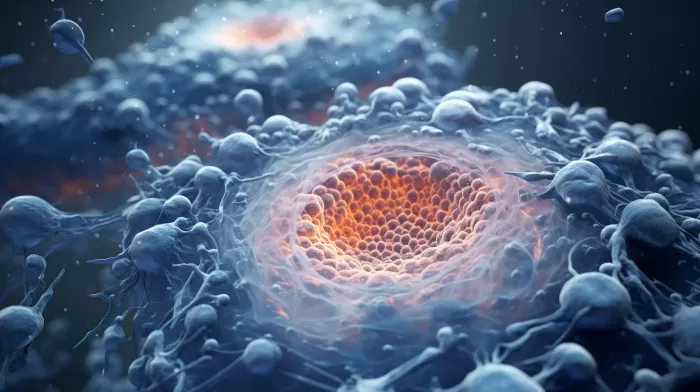You know all about how calcium builds strong bones and teeth. But did you know it can actually help protect the very genetic material you’re made of?
For the first time, researchers have shown that calcium is essential to helping our cells keep their shape and structure, rather than collapsing under the strain of the physical activity we perform every day.
We’re not talking about strenuous exercise, either. Just your everyday things like lifting packages, walking, and anything else that requires our muscles to flex.
Every move we make throughout the day causes our cells to stretch and deform. The problem is that these stretched and misshapen cells could lead to permanent DNA damage, and even to cancer.
Does that mean we need to sit in a chair for the rest of our days? How are we able to keep moving without destroying our cells?
New research tells us that the answer lies in getting enough calcium.
How your cells use calcium to stay strong
“Basically, every time we flex a muscle, we’re risking DNA damage that could lead to cancer. Or we would be, that is, if it weren’t for the calcium in our cells,” says Kris Dahl, a professor in the Departments of Chemical Engineering and Biomedical Engineering at Carnegie Mellon University.
Dahl and a team of 14 other scientists at major universities in Finland, France and Germany have found that it’s calcium that protects the nuclei of our cells, and the genetic material they contain, from the stresses of our daily movements.
When our muscles stretch or flex, the nucleus of each cell is deformed, putting the DNA inside at risk. Healthy cells use calcium to soften the nucleus and allow it to stretch without breaking.
If our cells cannot do this, then DNA damage can be the result, leading to cell death and, in extreme cases, to cancer.
Professor Dahl offers an analogy that illustrates calcium’s importance in all of this.
“As cells stretch and compress through the course of our daily activities, they have to rearrange their internal structures to compensate … they are able to do this through the use of calcium. It’s kind of like when you’re tying a bow in a ribbon. When you have to shift your hands, you ask someone to put their finger on the knot to hold it in place and make sure it doesn’t come apart. For our cells, that ‘finger’ is calcium.”
Why you need more calcium if you’re over 50, and where to get it
The older you get, the more at risk you are for a calcium deficiency. There are a few reasons this is true:
You may need fewer calories and find you’re eating less. But you may be leaving out those calcium-rich foods you used to consume. With age, your intestinal tract absorbs less calcium. This is especially true if you are also deficient in vitamin D. (Vitamin D helps your body absorb calcium). Your kidney function decreases, causing the kidneys to retain calcium. This means that more calcium gets excreted through the urine.
Of course, milk and dairy products will provide you with much of the calcium you need. But they’re not the only option.
Here are some other calcium-rich foods that provide other vitamins and minerals as well:
- Beans and lentils
- Almonds
- Collard greens
- Dried figs
- Soy beans
- Tofu
- Sardines
- Broccoli
What about calcium supplements?
While getting nutrients from food should always be your first line of defense, sometimes a supplement is needed.
In the case of calcium, you’ll want to talk with your doctor about taking supplements if:
- You’re not getting enough calcium from your diet, or if you follow a vegan diet
- You have Crohn’s disease or inflammatory bowel disease, both of which limit your body’s ability to absorb calcium
- Are being treated with corticosteroids over a long period of time
- Have osteoporosis or osteopenia
In addition to vitamin D to help your body better absorb calcium, you might also consider supplementing vitamin K2, not to be confused with plain vitamin K.
Vitamin K is found is green leafy vegetables, whereas K2, also known as menaquinone, comes from animal sources, like eggs, and a particularly powerful source comes from fermented vegetables, like natto from soy. According to the Kresser Institut, anticarcinogenic effects of vitamin K2 have been repeatedly demonstrated in cancer cell lines and are often attributed to menaquinones’ ability to regulate gene expression.
Sources:
Calcium Helps Build Strong Cells — Carnegie Mellon University College of Engineering
Heterochromatin-Driven Nuclear Softening Protects the Genome against Mechanical Stress-Induced Damage — Cell
Why seniors are more vulnerable to calcium and vitamin D deficiency — International Osteoporosis Foundation



